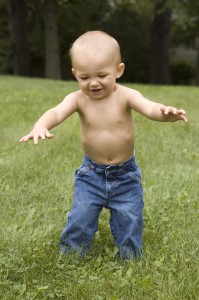
Located in Midtown, Saint Francis Xavier Catholic Church hosts an eclectic mix of patrons and passersby. With an active ministry to the poor of downtown Saint Louis, parishioners coming and going are often greeted by the ragged ushers of the streets. I would like to say I welcome these encounters as opportunities to feed, slake, clothe, shelter, and welcome Christ. More often than not, these meetings result in clashes pitting conscience against comfort; compassion against convenience. With the taste of the Eucharist still fresh in my mouth, with the melodies of hymns still humming in my head, the poor have frequently presented me with an uncomfortable mirror. Their requests for food, transportation, and human contact translate into the same annoying questions: “Am I more sheep?” “Am I more goat?” More often than not, I have discovered that I am a strange hybrid mixture of both.
Two Sundays ago, Arthur saw me coming from a block away. What’s more, he saw that I saw him seeing me. There would be no averting my glance, no avoiding his gaze. It was just him and me: his poverty, my comfort; his hunger, my wallet. Before you could sing, “Whatsoever you do to the least of my brothers…” we were walking to lunch together. Within a half of a block, I noticed that he could not keep up. I observed, “You’ve got quite a limp there. What’s going on?” He gestured down towards his feet, “I have a sore.” The foot that carried the sore was housed in a shoe that flapped open in front, allowing January’s weather to keep his feet perpetually wet. The next thing you know, I’m revisiting an old high school career at a Payless Shoe Store lacing up boots while comparing and contrasting the value of comfort verses water resistance. Having made our selection, it was on to lunch,
Seldom do Sunday scriptures match so closely as this Sunday’s first reading (Is 58: 7-10), and third reading (Mt 5: 13-16). In the Gospel selection, Matthew recorded Jesus inviting his followers to be “Light for the World; Salt for the Earth.” As if written as a prelude, Jesus’ favorite prophet, Isaiah (58), specified what being God’s “light” and “salt” in the world looks like. It looks a lot like someone willing to hear and respond to the cries of the poor.
Just after my visit with Arthur, my oldest daughter took me out for a birthday movie. Together we watched Dr. Ryan Stone (Sandra Bullock) twirl, drift, and fight for her life out beyond the reach of Earth’s atmosphere. As the movie wore on, it became clear that its title, “Gravity,” was chosen to portray a cosmological viewpoint. The events of the movie, and the backstory of the characters indicated that there is a kind of impersonal brutality in the universe that is as pervasive as gravity. Part way through the story, the viewer learned that gravity, itself, took the life of Dr. Stone’s four year old daughter when she accidentally fell and hit her head on the sidewalk. Since that time, the scientist/astronaut had become like a character floating untethered in space, immersing herself in work. Without giving away too much, the movie seems to be saying, “This impersonal, brutal universe is going to throw many things your way. Will you choose to fight back against the gravitational pull of entropy, and stand up, or will you allow the forces of despair, and drift to pull you along its own trajectory?”
As I walked out of the theatre, I remembered my new friend, Arthur. Through the lens of this movie, I reviewed some of the things he told me about himself. Like Dr. Ryan in the movie, a series of forces bigger than him had caused his life support systems to fray and snap. He described what it was like being homeless, floating through cold, hostile space…anonymously.
Dr. Stone, and Arthur, aren’t the only ones who have personally felt the tug of a kind of dark, impersonal gravity. The fact that “it’s nothing personal” is cold comfort when one’s beloved gets sick and dies. The inscrutable forces of an interconnected world can fray and snap the lifelines that hold an entire nation’s economy in place. Houses, jobs, and retirement savings drift away. Like the main character in the movie, “Gravity,”…or the lone actor trying to survive on the cold streets…the command to “Let [our] light shine” has something to do with standing back up during these kinds of circumstances. Being “salt of the earth” frequently means resisting the gravitational pull of forces that would have us throw in the towel.
We, who would follow a spiritual way, notice the seamlessness in our inter-connections with one another, including the poor. When beset by the inevitable slings and arrows built into the fabric of creation, we aspire to an intentional, defiant choice to stand up. But as we take our stand, we notice the common humanity of our brothers and sisters all around us. It is then that we lock arms, and stand together with them. In this way, we are light, and salt together.
